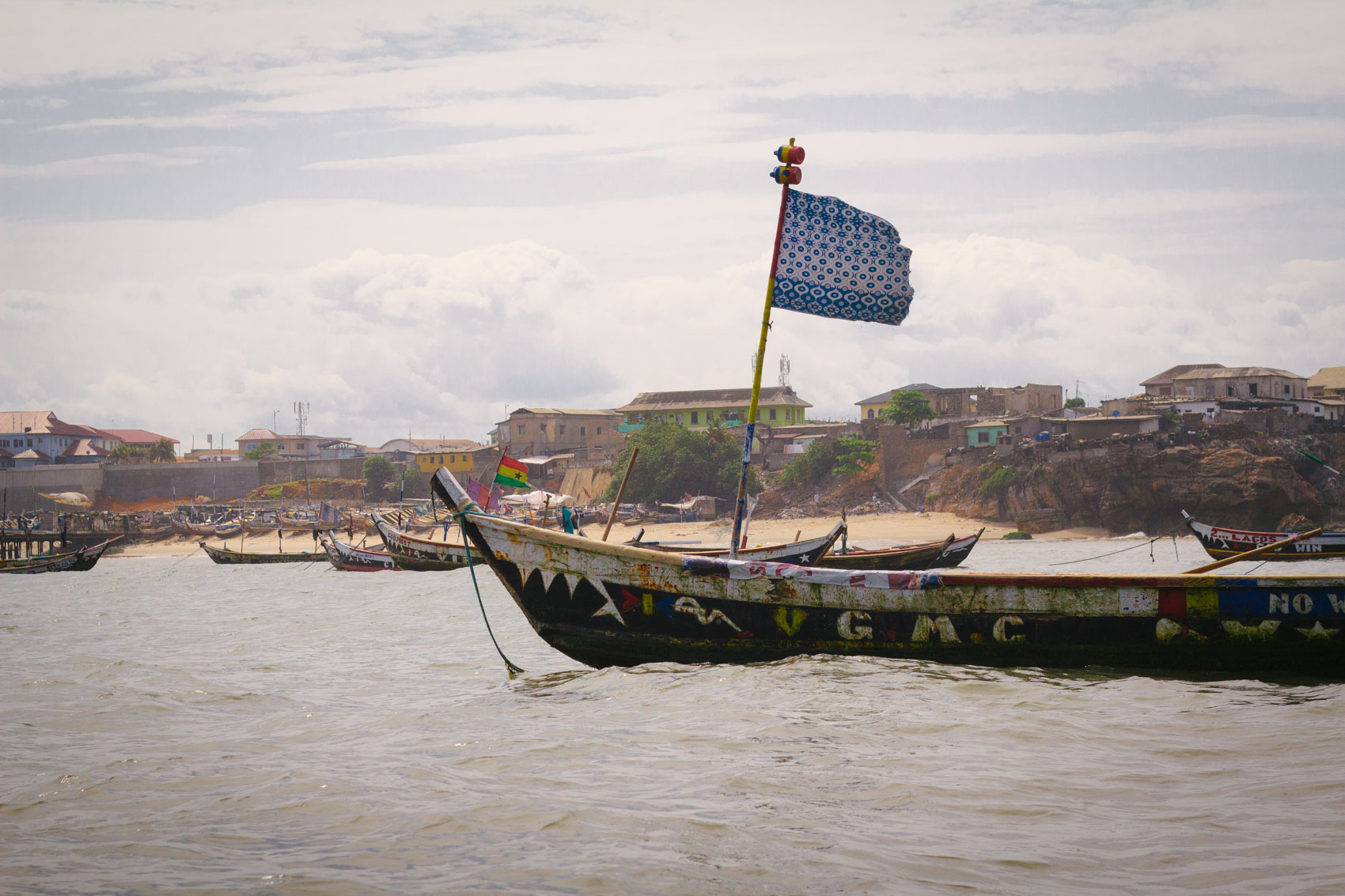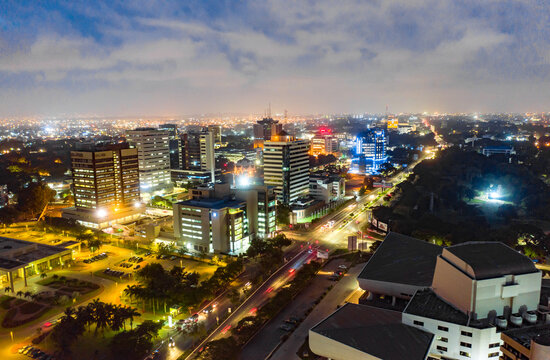Located on the coast of West Africa, Ghana is a country full of rich history and culture. From its ancient kingdoms to its colonial past, Ghana has a diverse and fascinating heritage that makes it a must-visit destination for travelers. This blog post will take you on a journey through the history, natural wonders, cultural tapestry, cuisine, music and dance traditions, art, literature, and political contributions of Ghana. Join me as we explore the vibrant and dynamic nation of Ghana.
Unveiling the Natural Wonders of Ghana

Ghana is blessed with a diverse landscape that ranges from savannahs and forests to coastal plains and mountains. The country’s natural beauty is a reflection of its geographical location, with the Atlantic Ocean bordering its southern coast and the Sahel region to the north. Here are some of Ghana’s most spectacular natural wonders:
Kakum National Park
Kakum National Park, located in the central region of Ghana, is a tropical rainforest that covers an area of 350 square kilometers. It is home to over 400 species of plants, including rare and endangered species such as the African mahogany tree and the giant silk cotton tree. But what makes this park truly unique is its canopy walkway, which is suspended 30 meters above the forest floor and offers breathtaking views of the dense greenery and wildlife below.
Lake Volta
Lake Volta, located in the eastern part of Ghana, is the largest man-made lake in the world. It covers an area of 8,502 square kilometers and is a source of hydroelectric power for the country. The lake is also a popular spot for fishing, with over 80 species of fish found in its waters. Visitors can take boat tours to explore the lake and its islands, or simply relax on the sandy beaches and enjoy the serene surroundings.
Mole National Park
Mole National Park, situated in the northern region of Ghana, is the largest and most visited national park in the country. It covers an area of 4,840 square kilometers and is home to over 90 mammal species, including elephants, hippos, and antelopes. The park also has a variety of bird species, making it a popular destination for birdwatchers. Visitors can go on safari drives, walk through the park’s trails, and stay at one of the lodges within the park.
Exploring the Rich Cultural Tapestry of Ghana

Ghana is a melting pot of cultures, with over 100 ethnic groups living within its borders. Each group has its own unique customs, traditions, and beliefs, making Ghana a fascinating country to explore. Here are some of the cultural highlights that you should not miss during your visit:
Adinkra Symbols
Adinkra symbols are traditional designs that are used by the Akan people of Ghana. These symbols have different meanings and are often used in fabric and pottery designs, as well as in everyday items such as furniture and jewelry. Some of the most common Adinkra symbols include Sankofa, which means “go back and get it,” representing the importance of learning from the past, and Gye Nyame, which means “except for God,” representing the omnipotence of God.
Traditional Festivals
Ghana is known for its vibrant and colorful festivals, which are celebrated throughout the year. These festivals are a way for communities to come together, celebrate their heritage and traditions, and honor their ancestors. One of the most famous festivals is the Homowo festival, which is celebrated by the Ga people of Accra. During this festival, the people offer thanks to their ancestors for a good harvest and pray for a bountiful year ahead.
Kente Cloth
Kente cloth is a hand-woven fabric that is native to the Ashanti people of Ghana. It is made from silk and cotton and is known for its intricate patterns and vibrant colors. Each pattern has a specific meaning, with some representing proverbs or historical events. Kente cloth is traditionally worn during important ceremonies and celebrations, such as weddings and funerals.
Ghanaian Cuisine: A Culinary Journey Through Flavors

Ghanaian cuisine is a reflection of the country’s diverse culture, with influences from different ethnic groups and colonial powers. The food is flavorful and hearty, often consisting of stews and soups served with staples such as rice, yams, and plantains. Here are some must-try dishes during your visit to Ghana:
Jollof Rice
Jollof rice is a popular dish in many West African countries, including Ghana. It is made with long-grain rice, tomatoes, onions, and spices, and can be served with chicken, beef, or fish. Jollof rice is a staple at parties and celebrations, and each household has its own unique recipe, making it a must-try dish for foodies.
Banku and Tilapia
Banku is a fermented corn dough that is boiled and served with a spicy soup or stew. It is often eaten with tilapia, a type of fish that is grilled or fried and served with a spicy sauce. This dish is a favorite among Ghanaians and is commonly found on the menus of local restaurants and street vendors.
Kelewele
Kelewele is a popular street food snack in Ghana. It is made from ripe plantains that are cut into cubes and seasoned with ginger, pepper, and other spices before being fried. Kelewele is often served with peanuts or grilled meat, and it is the perfect blend of sweet and spicy flavors.
Ghana’s Vibrant Music and Dance Traditions
Music and dance are integral parts of Ghanaian culture, with different ethnic groups having their own unique styles and traditions. The music is lively and rhythmic, often accompanied by traditional instruments such as the talking drum, kora, and xylophone. Here are some of the most popular music and dance traditions in Ghana:
Highlife Music
Highlife music is a genre that originated in Ghana in the early 20th century. It is a fusion of traditional African rhythms and Western musical influences, such as jazz and calypso. Highlife music is known for its upbeat and joyful melodies, making it a popular choice for weddings, parties, and other celebrations.
Adowa Dance
Adowa is a traditional dance that is performed by the Akan people of Ghana. It is usually performed at funerals and other important ceremonies and involves graceful movements and hand gestures that tell a story. Adowa dancers wear colorful traditional attire, and their performances are accompanied by drumming and singing.
Azonto Dance
Azonto is a popular modern dance style that originated in Ghana in the early 2000s. It is a combination of hip-hop and traditional African dance moves and has gained popularity worldwide. Azonto is usually performed to Afrobeats music and involves energetic and playful movements that tell a story or convey a message.
The Artistic Expressions of Ghana: Crafts, Sculpture, and Visual Arts
Art has been an important part of Ghanaian culture for centuries, with ancient kingdoms producing intricate and detailed works of art. Today, Ghana continues to be a hub for artistic expression, with talented artists creating stunning sculptures, paintings, and crafts. Here are some of the must-see art forms in Ghana:
Adinkra Stamps
In addition to being used in fabric designs, Adinkra symbols are also made into stamps that are used to print on paper. These stamps are made from carved calabash gourds or wood and are used to create beautiful patterns and designs. Adinkra stamps are often used in the production of greeting cards, journals, and other paper products.
Woodcarvings
Woodcarving is a traditional art form in Ghana and is often used to create intricate sculptures that depict everyday life, animals, and historical events. The most famous woodcarvings in Ghana are the Ashanti fertility dolls, which are believed to bring good luck to women trying to conceive. These dolls are commonly sold as souvenirs for tourists.
Coffin Art
One of the most unique and fascinating forms of art in Ghana is coffin art. In some parts of the country, people believe in burying their loved ones in coffins that represent their professions or passions in life. These coffins can take on any shape, from animals and cars to fruits and vegetables. Coffin art has gained worldwide recognition, with some pieces being displayed in museums and galleries.
Ghanaian Literature: A Reflection of the Nation’s Soul
Ghana has a rich literary tradition, with writers using literature as a way to tell the stories of their nation and its people. From folktales and poetry to novels and plays, Ghanaian literature offers a glimpse into the country’s past and present. Here are some notable works of Ghanaian literature:
“The Beautyful Ones Are Not Yet Born” by Ayi Kwei Armah
“The Beautyful Ones Are Not Yet Born” is a novel written by Ghanaian author Ayi Kwei Armah. It was published in 1968 and tells the story of a man struggling to maintain his integrity in a corrupt society. The novel is a commentary on Ghana’s post-independence politics and the challenges faced by its people.
“The Dilemma of a Ghost” by Ama Ata Aidoo
“The Dilemma of a Ghost” is a play written by Ghanaian writer Ama Ata Aidoo. It was published in 1965 and is considered the first published play by a female African playwright. The play explores the complexities of the relationship between Africans living abroad and those who have remained in their homeland.
“Ancestral Logic and Caribbean Blues” by Kwame Dawes
“Ancestral Logic and Caribbean Blues” is a collection of poems written by Ghanaian poet Kwame Dawes. The poems touch on themes such as identity, heritage, and spirituality, and are a reflection of Kwame Dawes’ personal experiences growing up in Ghana and Jamaica.
Ghana’s Contribution to Global History and Politics
Ghana has played a significant role in shaping the history and politics of not only Africa but also the world. From its ancient kingdoms to its modern-day democracy, Ghana has a rich political history that continues to evolve. Here are some notable moments in Ghana’s history and its impact on the world:
Gold Trade
Ghana, also known as the Gold Coast, was one of the major centers of the gold trade in West Africa. Its abundant supply of gold attracted traders from Europe and the Middle East, making it an important hub for commerce and cultural exchange. The gold trade contributed to the rise of powerful kingdoms such as the Ashanti Empire and the Kingdom of Dagbon.
Pan-Africanism
Ghana was at the forefront of the Pan-African movement, which aimed to unite Africans across the globe and promote unity and solidarity among people of African descent. In 1957, Ghana became the first African country to gain independence from colonial rule, inspiring other African nations to fight for their freedom.
First President: Kwame Nkrumah
Kwame Nkrumah is regarded as one of the most influential leaders in Ghana’s history. He led the country to independence and became its first president in 1960. Nkrumah was also a strong advocate for Pan-Africanism and played a key role in the formation of the Organization of African Unity (now known as the African Union).
Modern Ghana: Progress, Challenges, and Aspirations
Since gaining independence over 60 years ago, Ghana has made significant progress in terms of economic development, education, and healthcare. However, like many developing countries, it still faces its fair share of challenges. Here are some of the current progress, challenges, and aspirations of modern Ghana:
Economic Growth
Ghana’s economy has seen steady growth over the past few decades, with an average annual GDP growth rate of around 6%. The country has a diverse economy, with agriculture, mining, and services being the major industries. Ghana is also one of the top producers of cocoa and gold in the world.
Education
Education is a top priority in Ghana, with the government investing heavily in improving access to quality education for all its citizens. The country has achieved significant progress in increasing enrollment rates in primary and secondary schools, and the literacy rate has increased from 68% in 2000 to 79% in 2018.
Healthcare
Ghana has made strides in improving healthcare services for its citizens, with a focus on reducing maternal and child mortality rates. The country has implemented various programs aimed at providing better access to healthcare, such as the National Health Insurance Scheme, which covers over 40% of the population.
Challenges
Despite its progress, Ghana still faces challenges such as high levels of poverty, unemployment, and income inequality. Corruption and political instability are also major issues that the country continues to grapple with. Additionally, climate change poses a threat to Ghana’s agriculture-dependent economy, with extreme weather events becoming more frequent.
Aspirations
In recent years, Ghana has shown its commitment to sustainable development by implementing policies and initiatives to address environmental issues and promote economic growth while protecting natural resources. The country also aspires to become a regional hub for information and communications technology, with the government investing in infrastructure and promoting innovation and entrepreneurship.
Ghana’s Role in Shaping the African Continent
Ghana’s history and contribution to global politics have also had a significant impact on the African continent as a whole. From its role in the slave trade to its influence on Pan-Africanism, Ghana has played a crucial part in shaping the narrative of Africa. Here are some ways in which Ghana continues to make its mark on the continent:
Promoting Peace and Stability
Ghana has been recognized as a leader in promoting peace and stability in West Africa. The country has consistently ranked high on the Global Peace Index and has played an active role in mediating conflicts in neighboring countries, such as Liberia and Sierra Leone.
Hosting International Conferences
Ghana has hosted several international conferences and events that have had a significant impact on the continent. In 2007, the country hosted the World Economic Forum on Africa, which brought together world leaders and business executives to discuss economic development on the continent. Ghana has also hosted the African Union Summit, the Pan-African Historical Theater Festival, and the World Summit on Sustainable Development.
Contributing to Education
Ghana is home to many prestigious universities and has long been a hub for education in West Africa. The country’s universities attract students from all over the continent, providing quality education and contributing to the development of future leaders in Africa.
Conclusion
In conclusion, Ghana is a country full of history, culture, and natural wonders that make it a unique and fascinating destination. Its diverse landscape, vibrant music and dance traditions, mouth-watering cuisine, and artistic expressions all add to the charm and appeal of this West African nation. But beyond the surface, Ghana has a rich heritage that has shaped not only its own identity but also that of the African continent. As you explore Ghana, take some time to delve into its past and present, and you will gain a deeper appreciation for this beautiful country and its people.
